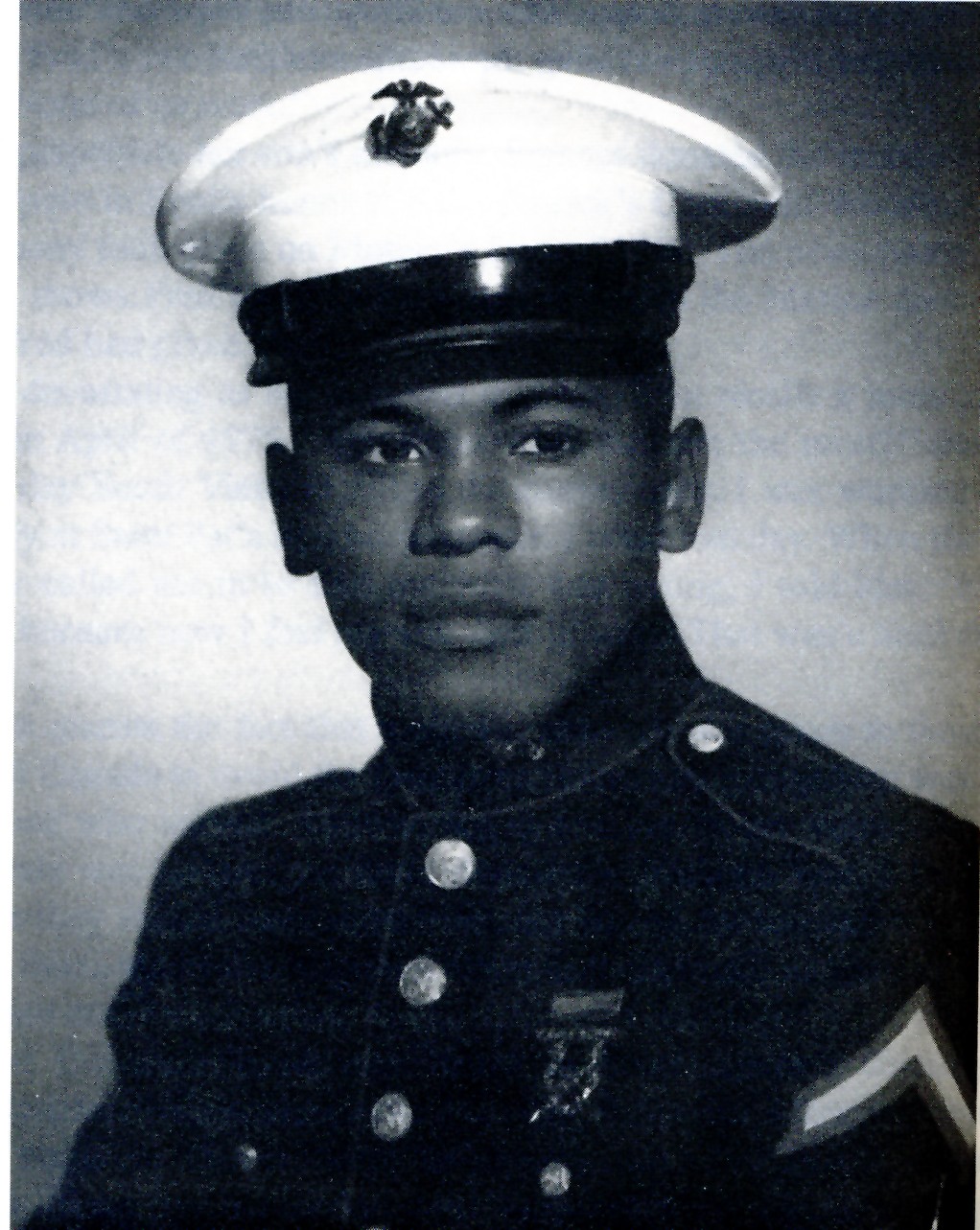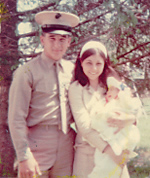LEON R FIELD - SP4
- HOMETOWN:
- glassboro
- COUNTY:
- Gloucester
- DATE OF BIRTH:
- August 07, 1933
- DATE OF CASUALTY:
- December 13, 1968
- BRANCH OF SERVICE:
- Army
- RANK:
- SP4
- STATUS:
- KIA
- COUNTRY:
- South Vietnam
Biography
Leon R. Field was born on August 7, 1933. His home of record is Glassboro, NJ.
He served in the US Army and attained the rank of Specialist 4 (SP4).
Field was killed in action on December 13, 1968.
Leon
August 7, 1933-December 13, 1968
SFC, Army Glassboro, NJ
There was something about jumping from airplanes and gliding to earth with a parachute that appealed to him. It really was that simple. Leon Field was destined to become an 'Airborne' paratrooper and when he enlisted in the Army as a seventeen-year old in 1951, he discovered that it was possible to live out his dream.
"He was very handsome," his sister, Carolyn Bracarello of Williamstown, NJ, says. "He had brown hair, blue eyes, and was muscular. When we were kids, he protected me. I guess because I was the only girl in the family. He loved to tell jokes, he liked motorcycles, and was very into sports of all kinds."
Leon was raised with two brothers and a sister on Pitman-Downer Road in Williamstown. He attended Glassboro High School until he joined the Army. The military was his chosen career; being a paratrooper was a bonus.
"He didn't want to go to school anymore," Carolyn says. "He wanted to jump out of airplanes. He was at Fort Dix for awhile. He loved to cook and was a mess sergeant. But once he went to Fort Bragg, North Carolina, all he wanted to do was jump out of planes."
After receiving parachute training and earning his 'Airborne' status at Fort Bragg, Leon embarked on a variety of assignments. He was a member of the famous 82nd Airborne Division in Germany for almost eight years. His overseas and stateside duty totaled more than seventeen years. He planned to retire after serving twelve months in Vietnam.
While in the service, Leon married and then fathered three children. He and his wife divorced before he was sent to Vietnam in May of 1968. His mother, Florence Field, cared for the children while Leon was away.
"He was devoted to the Army," remembers Carolyn. "And he cared about others. He really wanted to help his country. When he went to Vietnam, he had me believing that he would come back okay."
Upon arrival in Vietnam, Leon was assigned as a Platoon Sergeant with Company C, 4th Battalion, 39th Infantry Regiment, 9th Infantry Division in the rice paddies and rivers of the Mekong Delta, south of Saigon. His unit was part of the Mobile Riverine Force, a joint effort by the Navy and the Army's 9th Infantry Division. Photos of his unit show landing craft and patrol boats at their docks. One is of Leon holding a tiny puppy in front of a sand-bagged bunker.
Leon's PMOS (Primary Military Occupational Specialty) was Combat Infantryman. He was a foot soldier, a 'grunt'. The infantryman in Vietnam carried a sixty-pound backpack, slogged through countless rice paddies and hacked his way through dense jungles. The 'grunts' were the front line on both offense and defense. They experienced the horrors of the fighting, lost more buddies than anyone and operated in a bizarre world where their lives often depended on what they saw or did not see; what they heard or did not hear.
Leon was an airborne 'grunt'. He was qualified to be dropped behind enemy lines and he could pack parachutes. But in Vietnam, he lost his airborne status because soldiers did not jump into battles. His unit was delivered in a naval landing craft to a suspected enemy stronghold or to perform routine patrols, sometimes operating for weeks before being picked up again. Leon was in charge of a platoon of about twenty soldiers. In July of 1968, he was wounded and received his first Purple Heart. He returned to his unit later that month.
On the night of December 3, 1968, Leon's unit set up an ambush. His posthumous Bronze Star citation tells the rest:
Sergeant Field distinguished himself by valorous actions while serving as a Platoon Sergeant with Company C on an ambush patrol near Binh Thanh. After his platoon was set up in their night location, they came under a fierce attack from an enemy concealed in a nearby wood line. Disregarding the hostile fire, Sergeant Field courageously moved among his men as he directed them into better defensive positions and then adjusted artillery support to within forty meters of his location. Later in the night, Sergeant Field heard movement to his front and immediately alerted his men, then raised up to see if he could spot the enemy. During this action, he was wounded by a sniper, but his early detection caused the enemy to retreat. Sergeant Field's personal bravery and devotion to duty were in keeping with the highest traditions of the military service and reflected great credit upon himself, the 9th Infantry Division and the United States Army.
Leon received the best medical care possible but succumbed to his wounds ten days later. He was buried on December 30, 1968 in the Mount Zion Cemetery, in Barnsboro, NJ. He was a hero in every way to his sister. She still has and cherishes her brother's Purple Hearts and Bronze Star.
"I was shocked," Carolyn Bracarello says. "He was brave and he was doing his best, but his death really hit us hard. I did not have a protector any more, and his kids had to grow up without a father. He died for something he believed in, so I guess that counts for something. A lot of young men died there, I only hope we learned from it."
Excerpt from They Were Ours: Gloucester County's Loss in Vietnam
by John Campbell
Used with permission of author
Information provided by John Campbell (author) and NJVVMF.
Remembrances
Be the first to add a remembrance for LEON R FIELD
Help preserve the legacy of this hero, learn about The Education Center.
LEARN MORE

